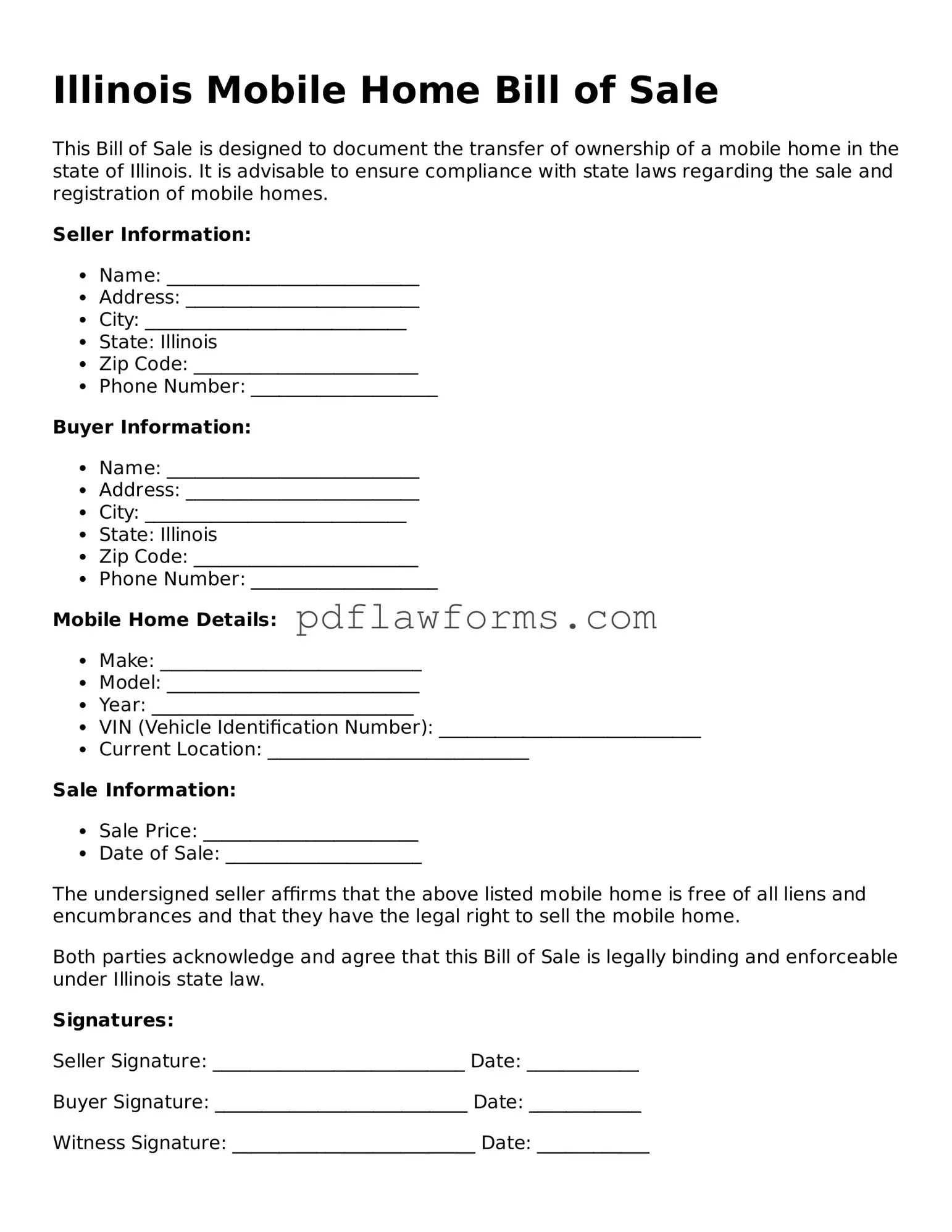Mobile Home Bill of Sale Form for the State of Illinois
The Illinois Mobile Home Bill of Sale form is a legal document used to transfer ownership of a mobile home from one party to another. This form outlines essential details such as the buyer and seller's information, the mobile home's description, and the sale price. Completing this form ensures a clear record of the transaction, protecting both parties involved.
To fill out the form, click the button below.
Make My Document Online

Mobile Home Bill of Sale Form for the State of Illinois
Make My Document Online
You’re halfway through — finish the form
Edit and complete Mobile Home Bill of Sale online, then download your file.
Make My Document Online
or
⇩ Mobile Home Bill of Sale PDF
